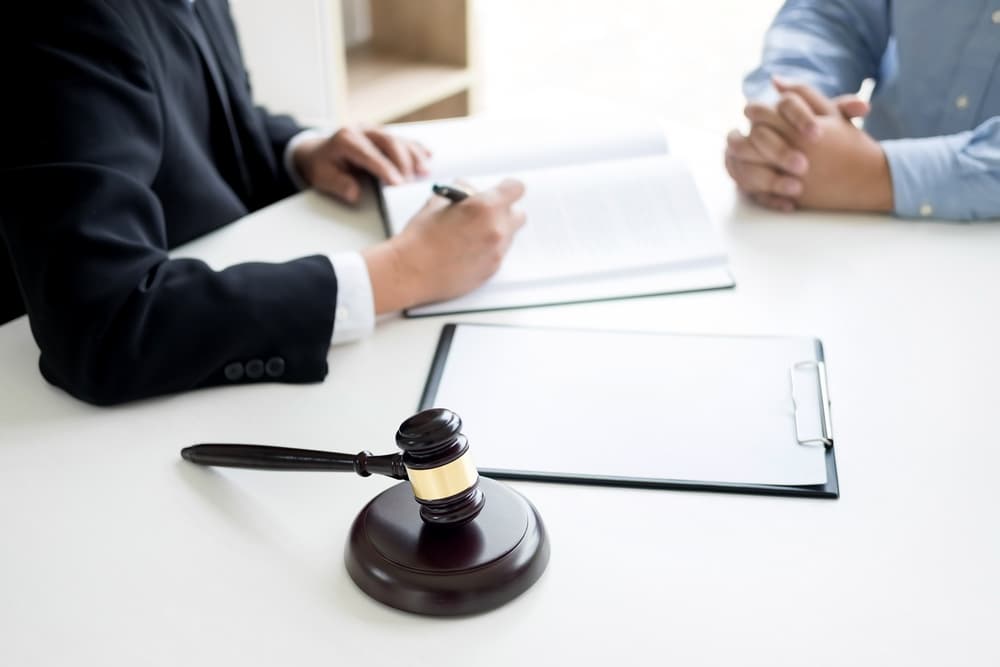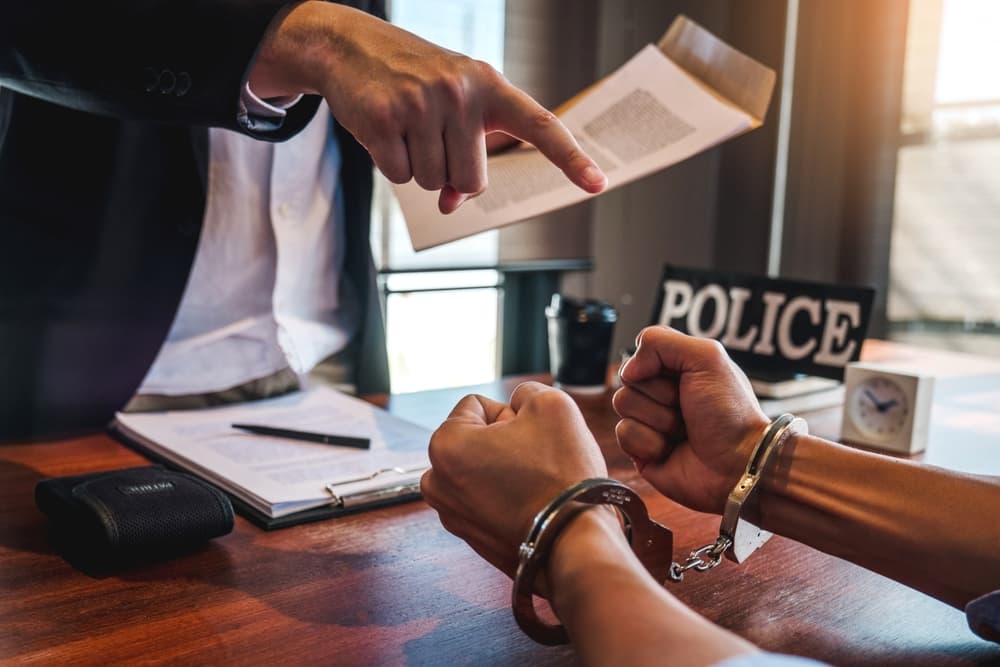If you are currently pending one or more criminal charges, a criminal defense attorney can file a pretrial motion in your case. These motions can serve various outcomes, including suppression of evidence at trial or an acquittal of your charge.
A knowledgeable criminal defense attorney in your area can determine your eligibility for filing various pretrial motions and take the necessary steps on your behalf. Your lawyer can also represent you at trial and other legal proceedings that occur throughout the process. During every stage of the proceedings, your attorney will aggressively fight for your rights and pursue the best possible outcome.
Types of Pretrial Motions That a Criminal Defense Attorney May File
Pretrial motions are crucial tools that a criminal defense lawyer may use. These motions are legal requests made before a trial begins, aimed at shaping the course of the legal proceedings and possibly benefiting the defendant’s case. Here are some common types of pretrial motions and how they can aid in your defense:
- Motion To Suppress Evidence — This motion asks the court to exclude certain evidence from being presented at trial. For example, if the prosecution obtained evidence illegally or in violation of the defendant’s rights, such as through an illegal search or seizure, the defense attorney can file a motion to suppress to prevent the prosecution from using that evidence against the defendant. Suppressing key evidence can weaken the prosecution’s case and increase the defendant’s chances of a favorable outcome.
- Motion To Dismiss — This motion seeks to have the charges against the defendant dismissed entirely. For example, insufficient evidence, lack of jurisdiction, or prosecutorial misconduct are ground for dismissal. If successful, a motion to dismiss can result in the case’s being dropped before it even goes to trial, saving the defendant time, money, and stress.
- Motion for Discovery — This motion requests that the prosecution turn over any evidence it plans to use against the defendant. Discovery allows the defense to review the evidence and prepare a strategy accordingly. It ensures that the defendant has access to all relevant information and can adequately defend themselves in court.
- Motion for Continuance — Sometimes, the defense may need more time to prepare for trial due to various reasons, such as the complexity of the case or scheduling conflicts. A motion for continuance asks the court to postpone the trial to a later date. This extra time can be invaluable for the defense to gather evidence, interview witnesses, or explore plea negotiations.
- Motion for Change of Venue — In high-profile cases or cases where the defendant believes they cannot receive a fair trial in the current jurisdiction due to pretrial publicity or community bias, the defense may file a motion for change of venue. This motion asks the court to move the trial to a different location where they can select an impartial jury.
These pretrial motions serve as powerful tools for criminal defense lawyers to safeguard their clients’ rights and improve their chances of a favorable outcome. An experienced defense attorney can determine your eligibility for filing one or more of these motions before your trial – and their likelihood of success.
What Happens If a Criminal Case Goes to Trial, and What are Some Motions a Criminal Defense Lawyer Can Raise at Trial?
When a criminal case goes to trial, the defense’s perspective is all about presenting the strongest possible defense to protect the accused from being found guilty. Here is what occurs during a criminal court trial, along with some motions that a criminal defense attorney may file to help the accused:
- Jury Selection — The defense attorney participates in selecting the jury, aiming to choose individuals who will be fair and impartial in weighing the evidence presented.
- Opening Statements — The defense attorney delivers an opening statement outlining the defense’s theory of the case and previewing the evidence that will be presented to challenge the prosecution’s case.
- Presentation of Evidence — The defense presents its case by calling witnesses, introducing exhibits, and cross-examining the prosecution’s witnesses. The defense aims to poke holes in the prosecution’s evidence and create reasonable doubt in the minds of the jurors.
- Motions During Trial — Throughout the trial, the defense attorney may file various motions to address legal issues or challenge the prosecution’s tactics. Some helpful motions that a defense attorney may file include:
- Motion To Suppress Evidence — If new evidence surfaces during the trial that was obtained illegally or in violation of the defendant’s rights, the defense may file a motion to suppress, asking the court to exclude that evidence from the jury’s consideration.
- Motion for Acquittal — After the prosecution presents its case, the defense may file a motion for acquittal if it believes that the evidence presented is insufficient to support a conviction. This motion asks the court to dismiss the charges against the defendant.
- Motion To Exclude Witnesses — If the defense believes that certain witnesses should not be allowed to testify because their testimony is irrelevant or unreliable, they may file a motion to exclude those witnesses from the trial.
- Motion for Mistrial — In cases of serious legal errors or misconduct that can prejudice the defendant’s right to a fair trial, the defense may file a motion for mistrial, asking the court to declare the trial invalid and start over with a new jury.
By strategically using these motions and tactics during a trial, an experienced criminal defense attorney can safeguard your rights, challenge the prosecution’s case, and pursue a favorable outcome for you.
The Prosecution’s Legal Burden of Proof in a Criminal Case

In a criminal case, the prosecution carries the burden of proof, which means they have the responsibility to prove the accused’s (defendant’s) guilt beyond a reasonable doubt. This burden is a high standard that the prosecution must meet to secure a conviction against the accused individual.
To prove guilt beyond a reasonable doubt, the prosecution must present evidence and arguments that convince the jury or judge that there is no reasonable doubt that the defendant committed the crime. This burden of proof entails the following:
- High Standard — “Beyond a reasonable doubt” is the highest standard of proof in the legal system. It requires the prosecution to demonstrate with near certainty that the defendant committed the alleged crime. This standard reflects the principle that it is better for the guilty to go free than for the innocent to be wrongly convicted.
- Evidence of Testimony — The prosecution must present credible evidence and testimony to establish each element of the crime charged. This can include physical evidence, eyewitness testimony, expert testimony, and any other relevant information that supports the prosecution’s case.
- Exclusion of Doubt — The prosecution must eliminate any reasonable doubt in the minds of the jury or judge regarding the defendant’s guilt. This means that while the evidence does not need to be absolute or perfect, it must be strong enough to convince the judge or jury that the defendant’s guilt is the only reasonable conclusion.
- Presumption of Innocence— Throughout the trial, the defendant is presumed innocent until proven guilty beyond a reasonable doubt. It is not the defendant’s responsibility to prove their innocence; instead, the burden rests entirely on the prosecution to prove guilt.
- Jury Instructions — Before deliberating, the judge instructs the jury on the burden of proof and the standard of “beyond a reasonable doubt.” The judge advises jurors that if there is any reasonable doubt about the defendant’s guilt, they must vote to acquit.
Failing to meet the burden of proof beyond a reasonable doubt can result in the defendant being acquitted of the charges. In cases where the prosecution cannot establish guilt to this high standard, the defendant is entitled to the presumption of innocence, and the law protects them from being wrongfully convicted.
Possible Defenses to Raise at Trial
Accused individuals have various legal defenses they can raise during a trial to challenge the prosecution’s case and potentially avoid conviction. Some common defenses and their potential outcomes, if successful, are as follows:
- Alibi Defense— An alibi defense involves presenting evidence to show that the accused was not present at the scene of the crime when it occurred. This defense can involve providing witness testimony, surveillance footage, or other evidence to support the defendant’s claim of innocence. If successful, an alibi defense can result in an acquittal as it directly contradicts the prosecution’s assertion of the defendant’s guilt.
- Self-defense — Self-defense is a defense strategy used when the accused claims they acted in response to a perceived threat to their safety or the safety of others. To successfully assert self-defense, the defendant must demonstrate that their actions were reasonable and necessary to protect themselves from harm. If the jury finds that the defendant acted in self-defense, they may acquit the defendant of the charges.
- Defense of Others — Similar to self-defense, the defense of others involves using force to protect another person from harm. The defendant must show that they reasonably believed the other person was in imminent danger and that their actions were necessary to prevent harm. If successful, this defense can result in an acquittal or a finding of justifiable homicide.
- Mistaken Identity — In cases where the prosecution’s evidence relies heavily on eyewitness testimony, the defense may raise a mistaken identity defense, arguing that the eyewitness misidentified the defendant as the perpetrator. Alibi evidence, inconsistencies in the eyewitness testimony, or other evidence casting doubt on the defendant’s involvement can all support this defense. If successful, a mistaken identity defense can lead to an acquittal or a hung jury.
- Entrapment — Entrapment occurs when law enforcement officers induce or persuade an individual to commit a crime that they would not have otherwise committed. To successfully assert entrapment, the defendant must show that law enforcement coerced or manipulated them into committing the illegal act. If the court finds that law enforcement entrapped the defendant, the judge may dismiss the charges against them.
What Are Some Alternatives to a Criminal Trial?
When facing criminal charges, defendants have alternatives to going to trial that can potentially lead to more favorable outcomes. Two common alternatives are plea deal negotiations and participation in diversion programs. Here’s a breakdown of these alternatives:
Plea Deal Negotiations

In plea deal negotiations, the defendant and their defense attorney work with the prosecution to reach an agreement where the defendant pleads guilty to a lesser charge or accepts a lighter sentence in exchange for avoiding trial. This option can be appealing for several reasons:
- Reduced Charges — Prosecutors may offer to reduce the severity of the charges, which can result in a less severe punishment if the defendant agrees to plead guilty.
- Lighter Sentences — In exchange for pleading guilty, defendants may receive a more lenient sentence, such as probation instead of jail time or a shorter prison sentence.
- Certainty and Control — By accepting a plea deal, defendants can avoid the uncertainty and stress of a trial, as well as the potential for harsher penalties if the jury finds them guilty.
Diversion Programs
Diversion programs offer an alternative to traditional prosecution for certain offenders, typically those charged with non-violent or low-level offenses. Instead of going through the criminal justice system, participants in diversion programs may have to complete specific requirements, such as:
- Counseling or Treatment — The court may require the defendant to undergo treatment programs to address underlying issues contributing to their criminal behavior.
- Community Service — Some diversion programs require participants to perform community service hours as a way to give back to the community and make amends for their actions.
- Education Programs — Defendants may have to attend classes or workshops on topics such as anger management, conflict resolution, or life skills.
- Restitution — Offenders may be required to compensate victims for any damages or losses resulting from their actions.
Participation in diversion programs can offer several benefits:
- Avoiding Conviction — Successful completion of a diversion program may result in charges being dismissed or expunged from the defendant’s record, preventing a criminal conviction.
- Rehabilitation — Diversion programs focus on addressing the underlying issues that contribute to criminal behavior, providing participants with tools and resources to make positive changes in their lives.
- Reduced Recidivism — By addressing the root causes of criminal behavior and providing support and resources, diversion programs can help reduce the likelihood of participants re-offending in the future.
Speak with a Knowledgeable Criminal Defense Lawyer About Your Case Today
If you are currently pending one or more criminal charges, you need to retain a skilled lawyer for representation right away. A criminal defense lawyer in your area can determine your eligibility for filing various pretrial motions in your case. They can also let you know the likelihood of success on these motions — including the possible outcome for your case — and take the appropriate steps in a timely manner.


